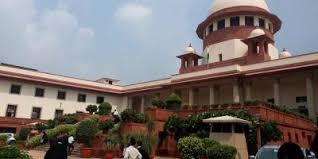Unscrupulous litigants should not be allowed to go scot-free. They should be put to strict terms and conditions including costs. It is time to check with firmness such litigation initiated and laced with concealment, falsehood, and forum hunting. Even State actions or conduct of government servants being party to such malicious litigation should be seriously reprimanded. In the instant case, we find initiation of criminal proceedings before a forum which had no territorial jurisdiction by submitting incorrect facts and giving frivolous reasons to entertain such complaints. A closer look at the respondent’s actions reveals more than just an inappropriate use of jurisdiction. The core issue of the dispute, which involves financial transactions and agreements, clearly places it in the realm of civil and commercial law. Yet, the respondent chose to pursue criminal charges in a quest to abuse the criminal justice system with a motive to seek personal vengeance rather than seeking true justice. This unnecessary turning of a civil matter into a criminal case not only overburdens the criminal justice system but also violates the principles of fairness and right conduct in legal matters. The apparent misuse of criminal proceedings in this case not only damages trust in our legal system but also sets a harmful precedent if not addressed. (Para 2)
After investigation, the police found that a case was made out against the accused under Sections 420, 467 and 120-B of the IPC. A charge-sheet was filed on 29.12.2020. Accordingly, the Chief Judicial Magistrate, Gautam Budh Nagar, vide order dated 15.02.2021 took cognizance and issued summons to the accused. (Para 8)
The appellants filed petitions under Section 482 of the Cr.P.C. before the High Court seeking quashing of the FIR and the summoning order dated 15.02.2021. The petitions having been dismissed by the composite order passed by the High Court, the same are under challenge in the present appeals. (Para 9)
More than two years after the application filed by the company was dismissed by Delhi High Court, the instant complaint was filed with the police at Gautam Budh Nagar, on the basis of which FIR in question was registered on 29.07.2018. (Para 13)
Not only this, despite dismissal of the application filed by the complainant for recall of the merger order by the High Court vide order dated 15.03.2016, in the complaint made to the police on 29.07.2018 i.e. more than two years and four months later, still the complainant did not furnish complete details thereof, especially the filing and dismissal of the application for recall of the merger order. Rather, it merely stated that he got the documents from the High Court which were filed along with the amalgamation application and came to know about certain facts therefrom but did not mention about the application filed for recall of the order of amalgamation and the result thereof. Non-disclosure of such relevant facts was a deliberate and mischievous attempt on the part of the complainant to maliciously initiate criminal proceedings for ulterior motives. (Para 31)
Most importantly, it needs to be noticed that it was a plain and simple transaction between the corporates. Even as per the complainant’s case, the short-term loan was advanced in the year 2010 for a period of one year. However, when the same was not returned, no steps were taken by the complainant to recover the same until the FIR in question was registered on 29.07.2018 i.e. 8 years & 7 months later. (Para 32)
Further, the complainant came to know about the merger of the Gulab Buildtech and Verma Buildtech with BDR in the year 2013 itself. However, even after dismissal of the application filed for recall of the merger order passed by the High Court on 15.03.2016, no steps were taken to recover the amount, except getting the FIR registered more than two years later. All these facts clearly reflect upon the ill designs of the complainant. (Para 33)
The entire factual matrix and the time lines clearly reflects that the complainant deliberately and unnecessarily has caused substantial delay and had been waiting for opportune moment for initiating false and frivolous litigation. (Para 34)
In view of the aforesaid discussion, we find that the FIR in question, if proceeded further, will result in absolute abuse of process of court. It is a clear case of malicious prosecution. Hence, the same is required to be quashed. (Para 36)
Considering the above facts and circumstances of the case, we impose costs of Rs.25 lakhs on the respondent Karan Gambhir to be deposited within four weeks from today with the Registry of this Court. Upon receipt of the said amount, the same will be transmitted in equal amount to the SCBA & SCAORA to be utilised for the development and benefit of their members. (Para 39)
SUPREME COURT OF INDIA
2024 STPL(Web) 31 SC
2024 INSC 32
Dinesh Gupta Vs. State Of Uttar Pradesh & Anr
Criminal Appeal No(S). Of 2024 (Arising out of S.L.P.(Crl.) No.3343 of 2022) With Criminal Appeal No(S). Of 2024 (Arising out of S.L.P.(Crl.) No.564 of 2023)-Decided on 11-01-2024.
https://stpllaw.in/wp-content/uploads/2024/01/2024-STPLWeb-31-SC.pdf







